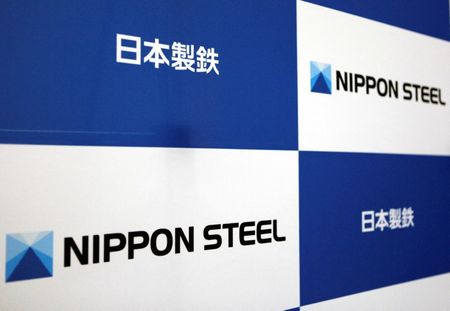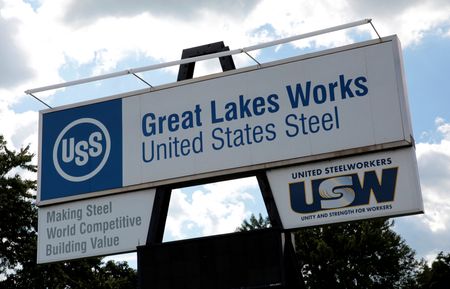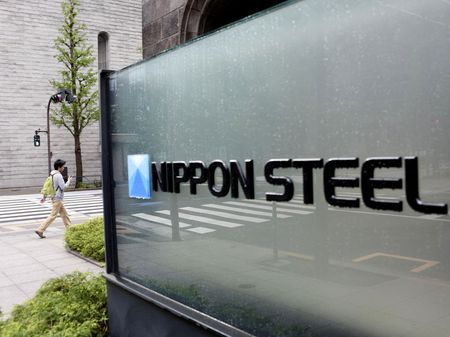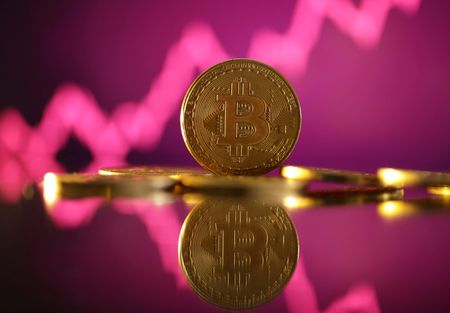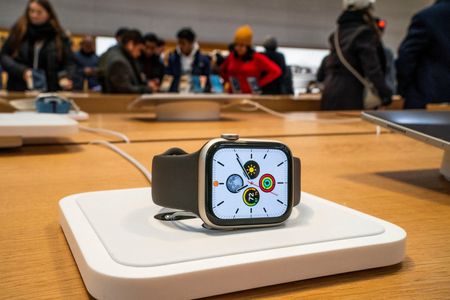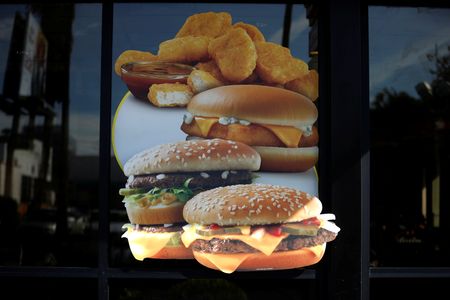By Yuka Obayashi and Mariko Katsumura
TOKYO (Reuters) -Nippon Steel said on Tuesday its $14.1 billion deal to buy U.S. Steel would help it tap into a new growth market, as concerns over the huge premium the world’s fourth largest steelmaker was paying sent its shares down as much as 6%.
Nippon Steel has been looking to expand overseas in recent years, as a shrinking population in Japan, where it generates nearly three-fifths of its revenue, is dimming the demand outlook for high-end steel used for autos and electronic goods.
The acquisition will add 20 million metric tons of crude steel capacity to its 66 million tons and make it a bigger supplier to the U.S. auto industry, which is ramping up output following major carmakers’ recent deals with labour unions.
“Nippon Steel aims to complete a global network … by establishing a base in the United States… where steel demand is expected to grow,” its president, Eiji Hashimoto, told a news conference.
“U.S. Steel is not a competitor to us in the U.S. market or elsewhere, so we can objectively say that it is a best match,” he said.
North America contributed just 12% to Nippon Steel’s total revenue in its latest fiscal year ended in March. The deal marks the firm’s accelerating overseas push to reduce its reliance on Japan.
U.S. Steel’s net sales at home last year were $16.8 billion, well over double the revenue of about 957 billion yen ($6.7 billion) that Nippon Steel generated in North America last fiscal year.
Last year, Nippon Steel bought majority stakes in two electric arc furnace steelmakers in Thailand, and in 2019, together with ArcelorMittal, the Japanese firm bought India’s Essar Steel.
The latest acquisition also comes just a month after Nippon Steel, which counts Toyota Motor as a major client, announced a $1.3 billion deal to take a 20% stake in Canadian miner Teck Resources’ steelmaking coal unit.
HUGE PREMIUM
“This deal will propel Nippon Steel into the top 3 global makers of steel,” Japan analyst Mark Chadwick wrote on the Smartkarma research platform.
“In many ways, Nippon Steel is paying a huge premium. In simple terms, the offer values U.S. Steel at an EV (enterprise value) of $750/ton, far higher than Nippon Steel’s own EV of $560/ton.”
Nippon Steel’s shares fell 5.5% in early trade in Tokyo to the lowest level since July, but pared losses to trade down 2.6%.
The Japanese steel giant clinched the deal with an offer of $55 a share in cash, which was a whopping 142% premium to U.S. Steel’s share price on Aug. 11, the last trading day before Cleveland-Cliffs unveiled a $35-per-share, cash-and-stock bid.
It is paying the equivalent of 7.3 times U.S. Steel’s 12-month earnings before interest, taxes, depreciation and amortisation (EBITDA), according to LSEG data.
When asked how Nippon Steel could justify paying such a high premium, Hashimoto said there was a “sufficient economic rationale”, without elaborating.
The company has not given any projection on the value of the synergies that will arise from the deal.
“The two combined will have a sizeable chunk of the global auto market and look well placed to benefit from the shift to EV motors known as e-steel,” Chadwick said.
“Even so, it is hard … to get excited given the looming costs to decarbonize the industry.”
The automotive and transportation sector represented almost a quarter of steel shipments out of U.S. Steel’s North American facilities in 2022, according to the company’s annual report.
U.S. Steel also provides steel for renewable energy infrastructure such as wind turbines and so stands to benefit from the U.S. Inflation Reduction Act (IRA), which provides tax credits and other incentives for such projects.
U.S. Steel shares ended trading up 26% at $49.59 on Monday following the deal announcement.
(Reporting by Mariko Katsumura and Yuka Obayashi; Writing by Miyoung Kim; Editing by Sonali Paul)

